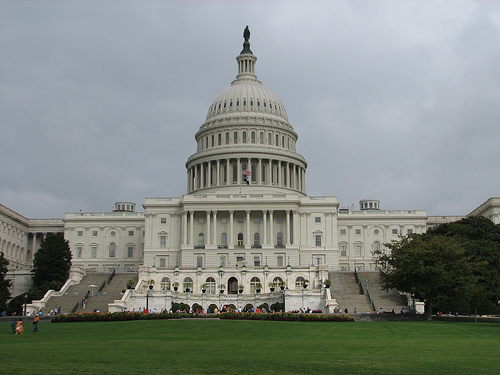Jeff Jacoby has an insanely stupid column in The Boston Globe arguing that "Yes, Virginia, the founding fathers wanted our governing bodies to be dysfunctional".
It's one of those pieces that makes you dumber for reading it.
Jacoby conflates "checks and balances" with "girdlock" as if the two things are synonymous:
What the smart set bewails today as “gridlock’’ or “brinksmanship’’ or an “agenda of pure nihilism,’’ the architects of the American system regarded as indispensable checks and balances. They knew how flawed human beings can be, and how ardently propelled by their passions and ideals.
No, Jeff. The "smart set" is bemoaning gridlock and they know the difference between gridlock and "checks and balances". Jacoby then attempts to support his thesis with, you know, evidence:
That was why they regarded restraint — not speed, not deference to presidents, not bipartisan cooperation, not administrative expertise, not popular opinion — as the linchpin of their constitutional plan. “Impressions of the moment may sometimes hurry [Congress] into measures which itself on mature reflection would condemn,’’ Alexander Hamilton wrote in Federalist 73. They may not have envisioned supercommittees, Gallup polls, or MSNBC. But they knew that presidents and lawmakers would always be under pressure to act too fast, do too much, decide too quickly. So it was essential, Hamilton said, that hurdles and roadblocks be incorporated into the constitutional structure – “to increase the chances in favor of the community against the passing of bad laws through haste, inadvertence, or design.’’ True, that might sometimes hold up needed change. But “the injury which may possibly be done by defeating a few good laws will be amply compensated by the advantage of preventing . . . bad ones.’’
But is this the choice? Reckless speed or gridlock? Is there no in between for Jacoby?
What's more, Federalist 73 isn't about, nor does it endorse gridlock. It is about presidential powers — most specifically, the veto power and the reasons for its necessity. The veto power is necessary to prevent Congress to act without reckless haste. And that makes sense, and I'm all for the veto power.
But congressional gridlock has nothing to do with the presidential veto power. In fact, taken to its extremes (an accurate characterization of the current Congress' dysfunction), it actually denies the president his veto power. This is precisely the intent of the GOP-led Congress.
Yes, the framers arguably intended the political process to be deliberate, even frustrating at times. But not to the point where obscure congressional rules could thwart progress and literally LOCK legislation before it even gets to the President.

